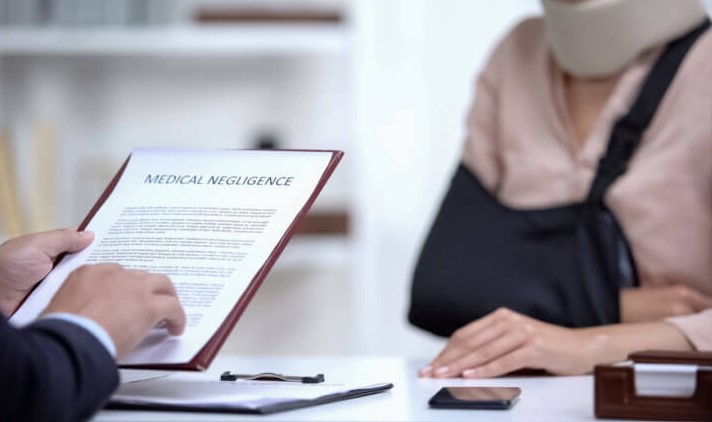
When it comes to financial struggles, the thought of filing for bankruptcy can be daunting and overwhelming. However, it’s important to remember that bankruptcy is not a failure, but rather a tool to help individuals and businesses get a fresh start. In this blog post, we’ll discuss the signs that it may be time to consider filing for bankruptcy, and the steps you can take to make the process as smooth as possible. Whether you’re an individual facing overwhelming debt, or a business owner dealing with financial difficulties, understanding when to file bankruptcy is crucial to getting back on track.
Overview: What Is Bankruptcy?
Bankruptcy refers to a legal procedure for individuals and companies who are unable or unwilling to pay outstanding debts. There are two options for declaring bankruptcy. You can file bankruptcy voluntarily. Creditors can ask the court for a bankruptcy order.
There are many ways to file for bankruptcy on your own. Before you file, consult a lawyer to determine the best option for you.
What Is the Difference Between Chapter 7 and Chapter 13?
There are two ways to resolve outstanding debts: Chapter 7 bankruptcy and Chapter 13 bankruptcy.
- Chapter 7. Redeem your assets and pay off any outstanding debts with cash
- Chapter 13. Work out a payment plan to pay off unpaid debts
What Is Chapter 11?
Chapter 11 is a less frequent and more expensive type of bankruptcy filing that small businesses may need. This bankruptcy is only for businesses with more than $2.5 million in debt or businesses that are owned by LLCs and partnerships. Although it is similar to Chapter 13, a Chapter 11 bankruptcy is typically only for businesses.
- This involves a creditors’ panel appointed by an independent trustee
- The creditors approve a plan to reorganize the company
- Establish a payment plan to help the company repay its debts
The Small Business Reorganization Act 2019 made Chapter 11 more affordable for small businesses and gave them greater flexibility in negotiating terms with creditors. This is still a less common chapter than Chapter 13. If you believe that Chapter 11 bankruptcy might be right for you, it is worth speaking with a lawyer.
What Happens When You Declare Bankruptcy?
Your creditors can stop pursuing you by filing a bankruptcy petition. Your creditors will cease trying to collect the money you owe. They won’t be able to:
- To collect your debts
- Repose your car
- Foreclose your home
A bankruptcy trustee will handle your case. This is a lawyer who will supervise it. Your creditors will be notified by the trustee and a hearing will be scheduled.
The next step is dependent on whether protection has been sought under Chapter 7 of the federal Bankruptcy Code or Chapter 13.
What Happens if You File Chapter 7?
One of the most popular types of bankruptcy is Chapter 7.
- You can betray many assets and have them sold to make way for cash
- With the proceeds of your asset liquidation, pay your creditors
You are allowed to keep certain assets, such as cash, clothing, and household items. However, these exemptions can vary depending on where you live.
If you have not reaffirmed any debts, your assets will be liquidated and creditors paid. When you agree to continue paying the debt, it is called debt reaffirmation. Reaffirmation allows you to keep certain assets and prevent liquidation.
Some people are not eligible to file for Chapter 7 bankruptcy. You may need to file a Chapter 13 bankruptcy if your income is too high.
What Happens if You File Chapter 13?
A Chapter 13 bankruptcy might be an option if you are unable to file for Chapter 7 bankruptcy or have money to repay creditors. You will:
- Plan to make payments to your creditors over three to five years, depending on your income
- All payments to creditors must be made on time
- Take a course in budget counseling
BOOK A FREE CONSULTATION NOW!
These milestones will complete the process and any remaining debt you are eligible to discharge will be wiped out.
Chapter 13 is an option for those with steady incomes who have some money each month to pay debts but need some breathing space and extra time to catch up.
What Does Bankruptcy Do to Assets and Liabilities
Your assets and liabilities may be affected differently depending on how you declare bankruptcy. Many of your assets will be liquidated to pay creditors. Chapter 7 bankruptcy is the most common. Chapter 13 allows you to retain assets and work on a repayment plan for any outstanding debts.
Check out these debtee categories to see how bankruptcy can affect assets and debts.
Small Business Owners
Small business owners who have a lot of personal debt may be able to keep their businesses afloat by filing for bankruptcy. It is important to remember that Chapter 7 and Chapter 13 do not address business debts unless you are a sole proprietor or personally responsible.
- Chapter 7: Sole proprietors can have both personal and business debts eliminated in one bankruptcy case. If your business debt is greater than your debt, you are not required to meet income requirements.
- Chapter 13: Your business assets will not be liquidated. However, your liability for any business debts may be erased. The company is still responsible for its debts.
Chapter 7 bankruptcy filings can exempt some business assets. If your business is service-based, and you don’t have significant inventory or equipment, then bankruptcy filings can exempt some business assets. You can probably continue running your business even if you pay off business debts.
Student Loans
Student loan debt can not be discharged by bankruptcy. Some people, like some government employees, may be eligible for student loan forgiveness that is not related to a bankruptcy filing.
You can ask your creditor for help with student loan debt management.
Mortgage Holders
Your home and mortgage are assets that will be considered in bankruptcy proceedings. This will determine your ability to repay. Your mortgage may be affected differently depending on which type of bankruptcy you file.
- Chapter 7: If you do not reaffirm or assume repayment of your mortgage, your home may be liquidated to repay your debt.
- Chapter 13: Your house is not liquidated and you are responsible for repaying your loan according to the terms of your repayment plan.
You could end up with your loan liability if you decide to reaffirm the mortgage in Chapter 7 bankruptcy. You won’t have the ability to file for Chapter 7 bankruptcy for many years if you are unable to repay. Creditors may also be able to sue you to recover the loan.
How Do I Declare Bankruptcy?
You must complete a credit counseling course to learn more about bankruptcy and other options.
You must complete the course and submit a petition at the U.S. Bankruptcy Court in the federal judicial district where you live. The petition will include your:
- Assets such as cars, houses, and bank accounts
- Monthly income and expenses
- How much you owe creditors
A copy of your most recent tax returns must be submitted with your petition. An attorney can prepare your petition or you can get bankruptcy forms from the U.S. courts.
Filing for Chapter 7
Sometimes, Chapter 7 is referred to simply as “straight bankruptcy.” Chapter 7 bankruptcy allows you to liquidate your assets that are not exempt to repay as much debt as possible. The cash is then distributed to creditors such as banks and credit card companies. Usually, you receive a notice of discharge within four months.
A bankruptcy means test is required to file Chapter 7. Only disabled veterans who file for bankruptcy to discharge military service debts or those with business debts are exempted.
Your credit report will carry the record of your bankruptcy for 10 years. Chapter 7 is a way for many to start over.
Filing for Chapter 13
Also known as a Chapter 13 bankruptcy, a Chapter 13 bankruptcy can also be called a reorganization bankruptcy. People can pay off their debts in Chapter 13. This allows them to do so over three to five years. Chapter 13 allows individuals with a steady, predictable income to apply for a grace period. All outstanding debts are discharged at the end of the grace period.
After the bankruptcy has been approved by the court creditors can no longer contact the debtor. The court may allow the debtor to continue working on and paying off his or her debts for the next few years, while still allowing him or her to keep their property.
8 Questions to Ask When You Declare Bankruptcy
Many people take their financial obligations seriously. They want to repay their debts fully. However, knowing when to file for bankruptcy and when you can negotiate or use another strategy can help you get on the right track to financial wellness.
These questions can help you evaluate your financial situation and provide insight into whether bankruptcy might be right for you. These questions should be discussed with an attorney.
1. Can I Only Make Minimum Payments on My Credit Cards?
Open balances on credit cards often have high-interest rates. If you only make minimum payments, your balance could quickly balloon. Your balance can spiral out of control if it was too high.
2. Can I Get Calls from Bill Collectors?
Collectors calling you constantly can be annoying and stressful reminders about your debt. Reach out to each creditor and ask if you can negotiate a lower balance, or lower monthly payment.
3. Can I Use Credit Cards to Pay for Necessities?
You can earn interest by paying for necessities with your credit card. This is why you should only use a debit card to pay for essential items.
4. Should I Consider Debt Consolidation?
There are many causes of debt. You can consolidate your monthly payments into one loan to make it easier to track outstanding debts. You will also be able to extend the time it takes to repay your loan, as you will have new payment terms.
5. Can I Sell Some Possessions to Pay Down My Debts?
Although it can be difficult to downsize or get rid of a vehicle, these steps could help you pay off debts and avoid bankruptcy.
6. Are There Things I Owe More Than I Pay?
Your income should be sufficient to cover your expenses, with enough buffer for unexpected circumstances. You could be considered for bankruptcy if your monthly payments exceed your take-home pay.
7. Are You Uncertain How Much I Owe?
The concern is caused by uncertainty about the total amount of your outstanding debts. If you are unable to calculate how much your outstanding debts are, it is possible that your balances have gotten larger.
8. Can Bankruptcy Resolve My Debts?
Bankruptcy doesn’t solve all debts equally. Student loans are not exempt from bankruptcy. Talk to your creditors if you are having difficulty paying your debts.
Don’t Wait Any Longer – Start the Process of Filing for Bankruptcy Today
Are you struggling with overwhelming debt and unsure of how to move forward? Tenina Law has decades of experience in providing top-notch bankruptcy services to residents of California. Our team of experts will work with you to understand your unique financial situation and develop a personalized plan to help you get back on track.
Services We Offer
Don’t let debt control your life any longer. Contact Tenina Law today to schedule a consultation and take the first step toward financial freedom. Our compassionate and understanding attorney will guide you through the process and provide the support you need to make a fresh start. Don’t wait, take control of your finances and call Tenina Law today.







[…] with partnerships and businesses. Individuals in business, such as sole proprietors, can also file a Chapter 11 petition. Chapter 11 is similar to Chapter 13 and it also includes a repayment […]
[…] settlement negotiation involving insurance requires large amounts of evidence, just like any other legal proceeding. This is to show your case and get the highest settlement amount possible. It can be difficult to […]
[…] be allowed to go to the clerk’s office. The clerk will ask you to tell them that you want to file for bankruptcy. If you’re filing an installment plan or fee waiver, the clerk will ask you to hand you the […]